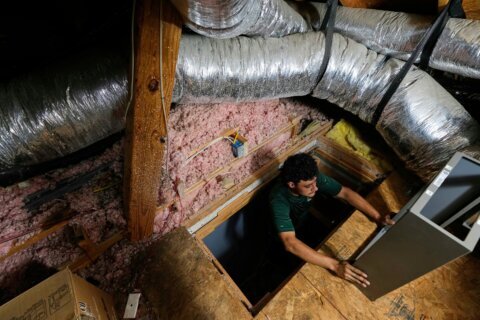In 2021, state, local and federal agencies received millions of complaints from consumers, and again the top category for complaints is auto sales and repairs, according to the Consumer Federation of America.
“These complaints tend to rise to the top just because this subject affects so many people,” said the federation’s Erin Witte.
Some complaints included cars that cost thousands more than the advertised price. There were also reports of agencies stepping in on what’s known as “yo-yo financing,” in which buyers get the car before financing is finalized. Some buyers are then forced days later to renegotiate the deal or have the car repossessed.
Other issues involved dealers who give buyers the cold shoulder when pricey repairs crop up soon after the sale.
The Maryland Attorney General’s Office is one of almost two dozen agencies whose data influenced the top 10 list. In one case, the state stepped in to help a consumer get temporary tags from a dealer who wouldn’t return the buyer’s calls.
The Fairfax County Department of Cable and Consumer Services, which also participated, reported stepping in when a newly purchased car needed a new transmission, but the dealer told the couple who bought it that they were on the hook for a big chunk of the repair.
Landlord-tenant complaints — including large rent increases, evictions and landlords who don’t return owed security deposits — came in second.
One such case was noted by the D.C. Office of the Attorney General, which stepped in when students living on campus at an unidentified college were denied their security deposit and charged extra fees. The college also threatened to call collections agencies on them for failing to give 60 days’ notice that they were moving out at the end of their lease, even though they reportedly paid the rent in full for the entire duration of their lease.
Home improvement repairs and contractor complaints were also prevalent, with many reports of contractors taking money but not finishing the work.
“The consumer would pay a significant down payment or even the entire payment, cash up front, for certain repairs and then the contractor just wouldn’t show up,” Witte said during a press call on Monday.
Here is the complete top 10 complaint categories:
- Auto sales and repair: Complaints about the sale of new and used automobiles (pricing, advertisements, mechanical defects etc.) as well as problems related to repairs.
- Landlord-tenant: Complaints about rental housing conditions, security deposit disputes and rent increases.
- Home improvement repairs and contractors: Complaints about home improvement contractors or repairmen, including quality and non-completion of work and licensure status.
- Retail purchase Issues: Complaints about purchase of merchandise (both over the internet and from brick-and-mortar stores), such as goods arriving late, receiving the wrong product or a defective product, and refund and exchange policies.
- Consumer debt and credit: Complaints about lending issues (including mortgages), banking, debt collection, credit reporting and other financial services.
- Frauds and scams: Complaints about various scams (“charge pending” scams, fraudulent lotteries/sweepstakes, IRS calls, etc.), elder fraud and identity theft.
- Utilities: Complaints about utility providers, including gas, electric, cable, telephone and internet providers.
- (TIE) Healthcare and wellness; robocalls and telemarketing: Healthcare and wellness complaints centered on quality of services of healthcare providers, billing practices, fitness and wellness centers. Robocalls and telemarketing complaints centered on robocalls to consumers’ homes and cell phones.
- Professional services: Complaints about services provided by licensed and unlicensed professionals, such as carpet cleaners, photographers, DJs, etc.
- Travel and recreation: Complaints about hotels, travel cancellations and refunds, moving and storage company complaints.
The survey found that many agencies reported difficulty addressing every case quickly, due to staffing shortages and a work environment which includes more teleworking.
The agencies also reported many cases stayed out of court and were solved through mediation between consumers and businesses. Others required enforcement action from state and local agencies.
The takeaway from the federation is that local consumer protection agencies are there to tackle these sorts of problems. At the same time, more governments need to do more to educate consumers on what to look out for and how to get help.








